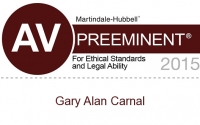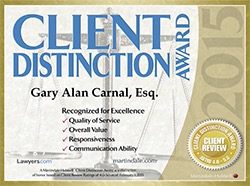What is Chapter 13 Bankruptcy?
One of the most commonly used bankruptcy options for individuals and families is Chapter 13 bankruptcy. There are many factors and reasons why someone might choose Chapter 13 bankruptcy over another form of bankruptcy, including eligibility and asset retention.
How does Chapter 13 Bankruptcy work?
Chapter 13 bankruptcy is also known as a “wage earner’s plan.” Whereas many people may equate bankruptcy with a total discharge of all debts from the relinquishment and sale of assets – including real property, such as a home – Chapter 13 bankruptcy instead establishes a repayment plan for the individual to make installment payments against their debts for a set number of years. The maximum number of years during which a person is required to make payments under Chapter 13 bankruptcy is five years. The process of making installment payments puts a stop to any continuing collection efforts by creditors.
Depending on the type of debt, the plan may not require an individual to pay off the full balance. Priority debt, such as unpaid taxes, are generally required to be paid in full. Secured debt, or debt that is attached to a collateral or piece of property – such as a car loan – must be paid off at least to the value of the collateral, if the individual wishes to keep it. For unsecured debt, or debt that is not attached to any particular property or collateral, the amount to be paid off is determined by the individual’s available income and the amount that the creditor would have received had the individual filed for Chapter 7 bankruptcy.
Eligibility for Chapter 13 Bankruptcy
In order to be eligible to file for Chapter 13 bankruptcy, an individual must have regular income – which can come from self-employment or an unincorporated business. The individual must also have less than $383,175 worth of unsecured debts, and less than $1,149,525 of secured debts.
Individuals filing under Chapter 13 are deemed ineligible if, in the 180 days prior to the petition, the individual had a bankruptcy case dismissed by the court for failure to abide by court order or failure to appear, or if the individual voluntarily dismissed a bankruptcy case when creditors sought to recover property. In addition, debtors filing for Chapter 13 bankruptcy are required to have received credit counseling some time during the 180 days prior to filing the petition.
Benefits of Chapter 13 Bankruptcy
Many people choose to file for Chapter 13 bankruptcy because they do not meet the eligibility requirements to file for Chapter 7 bankruptcy. Chapter 13 bankruptcy does offer some distinct benefits.
While creditors will still be paid back under Chapter 13 bankruptcy, individuals may be able to keep property and assets. Individuals who want to be sure that they will be able to keep their family home or their car may wish to pursue Chapter 13 bankruptcy in order to hold on to those assets.
If you or a loved one has questions about bankruptcy and whether or not it is right for you, it is important to talk to a skilled attorney to review your case and discuss all of your available options. Contact the experienced Florida attorneys at Carnal & Mansfield, P.A. for a consultation today.







